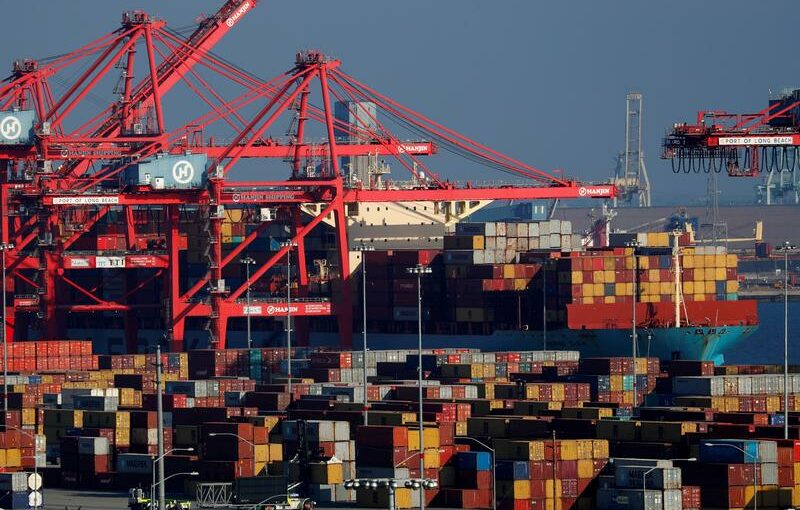WASHINGTON (Reuters) – U.S. import prices increased solidly in June as bottlenecks in the global supply chain persisted, the latest indication that inflation could remain elevated for a while amid strong domestic demand fueled by the economy’s reopening and fiscal stimulus.
Still, prices appeared to have peaked. Import prices rose 1.0% last month after surging a 1.4% in May, the Labor Department said on Thursday. The eighth straight monthly gain left the year-on-year increase at 11.2% compared with 11.6% in May. Economists polled by Reuters had forecast import prices, which exclude tariffs, increasing 1.2%.
The government reported this week that consumer prices increased by the most in 13 years in June, while producer prices accelerated.
COVID-19 vaccinations, low interest rates and nearly $6 trillion in government relief since the pandemic started in the United States in March 2020 are fueling demand, straining the supply chain. Federal Reserve Chair Jerome Powell told lawmakers on Wednesday that “inflation has increased notably and will likely remain elevated in coming months before moderating.”
Imported fuel prices advanced 4.7% last month after rising 5.5% in May. Petroleum prices gained 4.6%, while the cost of imported food increased 1.9%. Excluding fuel and food, import prices climbed 0.6%. These so-called core import prices shot up 1.1% in May.
The report also showed export prices increased 1.2% in June after rising 2.2% in May. Prices for agricultural exports advanced 1.5%. Nonagricultural export prices gained 1.1%.
Export prices increased 16.8% year-on-year in June after surging a 17.5% in May.
Source: Read Full Article
